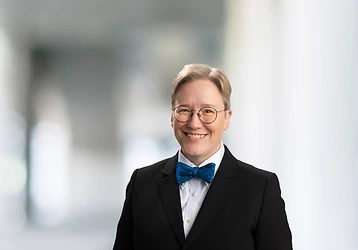Trump Administration Forecast: How the Telecom Sector could be affected
Given the lack of specificity in the Trump campaign with regard to telecommunications policies, trying to forecast the effect of his election on telecommunications regulation involves a fair measure of speculation. But there are some impacts that appear to be fairly clear. Although the Federal Communications Commission (FCC) is ostensibly an independent agency, the influence of the White House was very significant, as evidenced by the FCC's actions in the Open Internet proceeding (also referred to as "Net Neutrality") of reclassifying Internet access service as a Title II telecommunications service after a request to do so by President Obama. The influence of the tech industry on the Obama Administration was significant, and the White House's bias in favor of policies championed by Silicon Valley was embraced by the FCC, as evidenced by a number of rulemaking proceedings.
Likewise, the White House was fairly responsive to lobbying by "consumer advocate" groups. And the FCC was similarly receptive to such organizations. Indeed, one of FCC Chairman Wheeler's senior counselors on his personal staff had headed one such consumer advocacy organization before joining the Chairman's staff -- Gigi Sohn led the group Public Knowledge. It is fairly evident that a reconstituted FCC under President Trump will not be influenced by Silicon Valley or "consumer advocates" to anywhere near the same degree as the current FCC. And this change will certainly impact telecommunications policies.
One set of regulations likely to be reversed early on by the FCC under the new Trump Administration would be the FCC's Net Neutrality rules. The Net Neutrality rules were adopted under Chairman Wheeler on a sharply partisan basis. Perhaps the most controversial aspect of the FCC's Net Neutrality rulemaking was the re-classification of Internet access service as a Title II telecommunications service subject to common carrier regulation. And one of the "side effects" of that re-classification was the creation of a vacuum with regard to privacy regulations, because such re-classification divested the Federal Trade Commission (FTC) of jurisdiction. The Commission recently adopted new and extensive privacy regulations that apply to Internet service providers, and those regulations are more stringent than the privacy regulations that the FTC applies to other participants in the Internet marketplace, such as search engines. Given the Trump campaign's positions on privacy -- including Trump's criticism of Apple's decision not to unlock a terrorist's encrypted phone -- along with the decreased influence of Silicon Valley, the FCC's new privacy regulations are also likely to be changed significantly under the reconstituted FCC.
Reversal of the FCC's Net Neutrality rules (and the Title II re-classification) could be accomplished through alternative procedures. The new FCC could initiate a rulemaking proceeding to modify the Net Neutrality and privacy rules. Such a process would take some time, because of the need to draft and issue a Notice of Proposed Rulemaking, compile a record, and then draft and issue a decision. More immediately, the new FCC could use its discretion to halt the ongoing investigations of certain practices -- such as "zero-rating" -- that are being reviewed pursuant to the FCC Net Neutrality "general conduct" rule. In addition, although the FCC's Net Neutrality decision was upheld by a panel of the D.C. Circuit Court of Appeals earlier this year, that court decision is currently subject to requests for en banc review by the entire Circuit. The Commission could retract its opposition to the request for en banc review as a means of facilitating reversal of the panel decision that upheld the Title II reclassification and Net Neutrality rules.
The expected decline in the influence of Silicon Valley and "consumer advocates" at the FCC could also affect the Commission's current consideration of a spectrum allocation for vehicle-to-vehicle communications. The FCC first set aside 75 MHz of spectrum (in the 5.9 GHz band) for vehicle connectivity in 1999, referring to the service as Dedicated Short Range Communications (DSRC). More recently, in 2013 the FCC re-allocated spectrum adjacent to the DSRC frequencies, and also proposed to allow unlicensed services such as WiFi to "share" the DSRC spectrum. Such sharing of the DSRC spectrum for WiFi will benefit Silicon Valley companies, and they have supported the FCC’s proposed changes. In addition, just a few months ago two "consumer advocacy" groups -- Public Knowledge and Open Technology Institute -- filed a petition for rulemaking and request for stay with the FCC, seeking to reduce the amount of spectrum allocated to DSRC, and to halt any deployment of DSRC until the FCC could develop rules for cybersecurity and privacy that would apply to DSRC.
The FCC, the Department of Transportation (DoT) and the National Highway Traffic Safety Administration (NHTSA) have agreed to undertake extensive testing of the compatibility of DSRC and WiFi to share spectrum without causing "harmful interference" to DSRC services. The decrease in influence of Silicon Valley companies at the FCC should mean that vague terms like "harmful interference" will not be construed to the detriment of DSRC and the automotive industry when assessing the ability of DSRC and WiFi to share the DSRC spectrum. Moreover, the decline in influence of "consumer advocacy" groups should result in the FCC dismissing summarily the Public Knowledge/Open Technology Institute petition for rulemaking that was seeking to significantly limit DSRC. Thus, at the FCC at least, the automotive industry should benefit some from Trump's election in the near term.
Stephen L. Goodman
202.454.2851
goodman@butzel.com
Jennifer A. Dukarski
734.213.3427
dukarski@butzel.com











